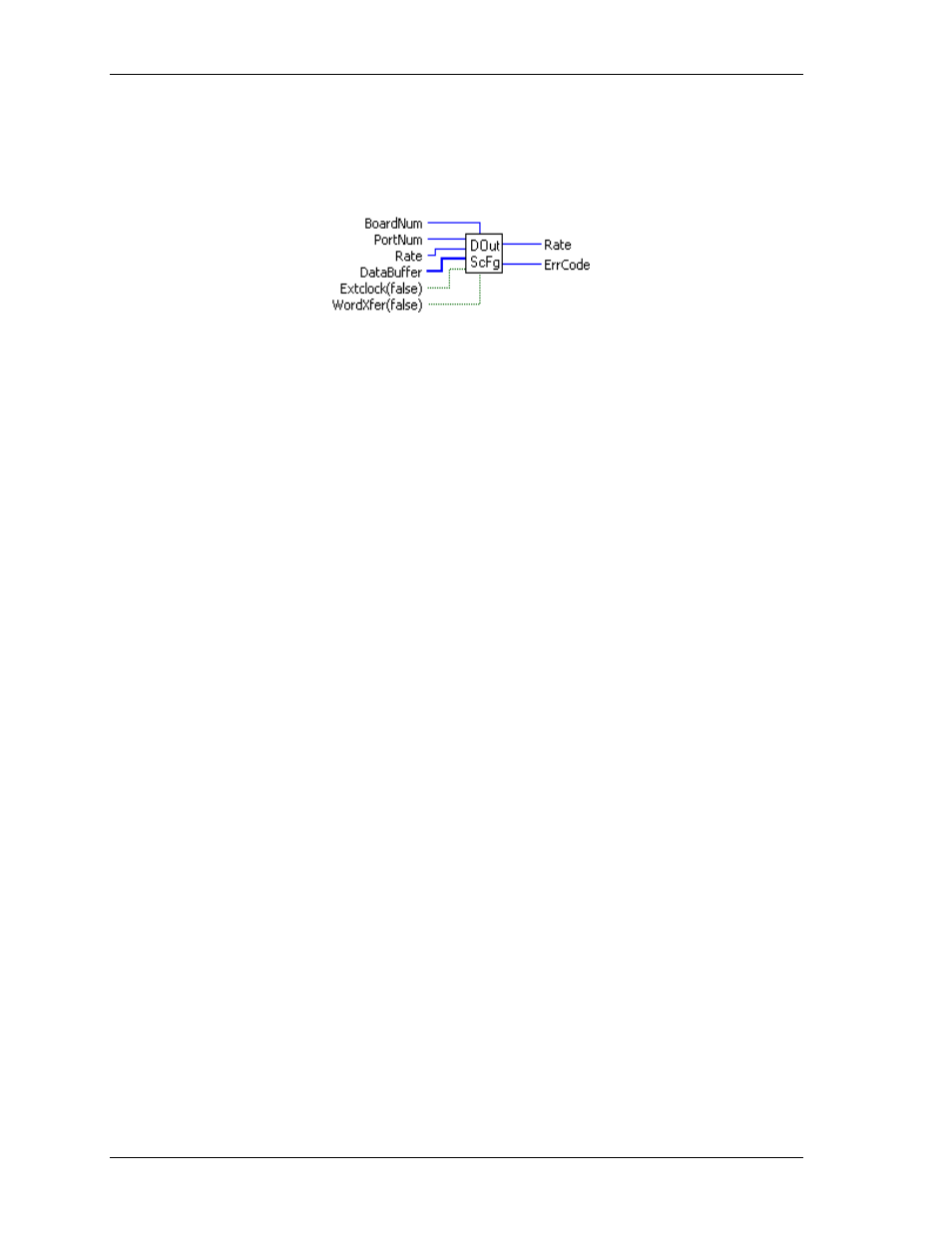Doutscfg.vi – Measurement Computing UL for NI LabVIEW User Manual
Page 82

Universal Library Virtual Instruments (VIs)
Digital I/O VIs
DOutScFg.VI
Multiple writes to digital output port of a high speed digital port on a board with a pacer clock, like the CIO-
PDMA16. The DOutScFg.VI will not return to your program until all of the requested data has been output.
Summary:
Inputs:
BoardNum
[U32] - The board number assigned when installed with InstaCal. Can
be 0 to 100.
PortNum
[I32] - Specifies the digital I/O port to set.
Rate
[I32] - Number of times per second (Hz) to write.
DataBuffer
[I16] - Digital output values.
ExtClock
[TF] - External (True) or internal clock (False).
WordXfer
[TF] - Word (True) or byte transfer (False).
Outputs:
Rate
[I32] - Actual rate is returned here.
ErrCode
[I32] - Error code. See ErrMsg.VI
Arguments:
BoardNum
The board number associated with a board when it was installed with InstaCal.
PortNum
If the port type is not
AUXPORT
, the specified port must be configured for output.
For many boards, AUXPORT is not configurable. However, some later boards do
require that the AUXPORT be configured using DCfgPort.VI or DCfgBit.VI.
Please see board details for more information.
Rate
(input)
Number of times per second (Hz) to write to the port. The actual update rate in
some cases will vary a small amount from the requested rate. The actual rate will
be returned to the
Rate
argument.
DataBuffer
Array of digital values to output.
ExtClock
If this option is used, then transfers will be controlled by the signal on the trigger
input line rather than by the internal pacer clock. Each transfer will be triggered on
the appropriate edge of the trigger input signal (see board-specific info). When this
option is used, the
Rate
argument is ignored. The transfer rate is dependent on the
trigger signal.
WordXfer
Normally, this VI sets a single (byte) port (default is False). If
WORDXFER
is
specified (True), it will set two adjacent ports on each write and store the value of
both ports together as the low and high byte of a single array element in
DataBuffer
[].
Rate
(output)
Actual update rate in samples per second.
ErrCode
Error code returned from the Universal Library. Zero if no error occurred. Use the
ErrMsg VI to convert
ErrCode
into a readable string.
82
